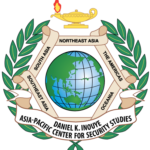By Deon Canyon[1]
Michael Kabuni[2]
Papua New Guinea (PNG) is a strategic asset in the Indo-Pacific geopolitical map and will continue to be used by Beijing, Washington, and Canberra until it picks a side, and probably even beyond that. The key reasons underlying the pursuit of PNG relate to gaining economic advantage and hegemonic dominance. PNG rightly expects that Washington, together with Canberra, would give as much ‘carrot’ as possible to Port Moresby rather than ‘stick’ for fear of losing an important ally to Beijing. Beijing is expected to apply the same amount of caution in preserving its positive external relations with PNG. All these states want to be seen to be relevant and justified in their exercise of influence, power and dominance.
While neutrality is often associated with people who are confused about the uncertain future and a lack of principles, Papua New Guineans believe it is a viable course of action. When applying game theory, a cooperative and neutral approach is most likely in a time of peace because it can be used to obtain maximum advantage from each actor. However, although PNG can gain favorable economic advantage from this game play, it comes with certain costs, including a hollowing out of PNG’s sovereignty, and an accumulation of crippling external debt over the long run. This makes PNG increasingly economically weak and dependent, which makes it more vulnerable and susceptible to manipulation by influential actors. That said, PNG is already capitalizing on its weaknesses by maximizing the opportunities presented by both sides of the divide as it applies smart strategies, such as band-wagoning or free-riding, at the expense of great power rivalry in the region.
The U.S. refocus on the Pacific is a welcome development given that it has not looked much further beyond American Samoa, Federated States of Micronesia, Guam, and the Northern Marianas for a long time. The Blue Pacific Act, sponsored on the floor of the U.S. Senate is also welcomed, but many believe it carries similar narratives presented in Obama’s 2011-2012 Pivot/Rebalance to the Pacific, which did not amount to much at all. It is certainly a notable step in the right direction, but it will fail to result in much and become rhetoric like the Rebalance if it is not diligently implemented.
Some fairly explicit recommendations for how the U.S. can improve its posture in PNG were made by several political thinkers who contributed to this paper.
- Strengthen diplomatic relations with PNG to create partnerships and actions at various levels all the way from grassroots to government. Specifically, compliment the current top-down approach with bottom-up approaches designed to establish a strong local presence on the ground and reorient public support away from China.
- Directly channel development aid for human resources, technical support, infrastructure, etc. to local NGOs & companies via cooperative partnerships.
- Relax the stringent screening and vetting process involved in awarding contracts to local NGOs and local companies who want to partner, in terms of service delivery, to roll out projects.
- Learn from the well-received multilateral effort to power up 70% of PNG in the years leading up to 2030 with Australia, New Zealand, and Japan, and explore other multilateral cooperative projects – even with China.
- Provide more U.S. scholarships to named Pacific Island countries without amalgamating them into one package. China provides at least 30 undergraduate and three graduate scholarships annually, but most PNG students would prefer a U.S. education. However, U.S. undergraduate scholarships are limited to 1 or 2, and graduate scholarships like Humphrey Fellowship, Fulbright Scholarship, and USSP scholarship are limited to 1-3 seats. All have stringent screening and vetting requirements that are difficult to meet, whereas the road to China is easier to travel. Often PNG citizens do not even get a chance to compete for U.S. seats as preference goes to other Pacific Island nations.
- Australia’s actions and attitudes caused PNG to turn to China, so the U.S. will gain more traction if it focuses on bilateral relations with PNG rather on multilaterally relations.
- Develop a stronger, more engaging relationship with the PNG military and assist PNG to increase its naval presence.
- Make it obvious that PNG has more to benefit from an alliance or partnership with the U.S.
- “Security and Cooperation” (in the Blue Pacific Act ) is one of the most important elements in U.S.-PNG diplomatic relations which must continue to evolve and diversify over time and space
- The rotational deployment of U.S. Marines from the 101st Marine Expeditionary Units in Darwin, Australia is a good first step, but more military action in PNG is needed to actively deter China’s “Silk-Belt-Road” initiative.
- When the U.S. withdrew from the Trans-Pacific Partnership in favor of a Comprehensive Economic Trans-Pacific Partnership, nothing happened. The U.S. needs to be clear and focused on the need to have a proactive approach to economic development in PNG with more action and less rhetoric.
- Focus on budgetary aid and align funding with development projects. Many sectors, such as the Health sector, require a multi-sectorial budget approach so that all sector agencies get a fair and equal share of funding.
- The US-NZ-AU-JP funding of electricity to cover 70% of PNG by 2030 is by far the most relevant intervention as it will improve lives and will not be seen as something done for immediate gain, such as the Manus Naval base or Refugee Processing Centre. The struggle for popularity and relevance in PNG will be won on infrastructure, but only infrastructure that makes a long-term developmental difference to the people.
- The U.S. is like that third cousin that you never see. Establish closer ties with PNG at all levels by making a difference to the lives of the population with action, not rhetoric.
- Be recognized in the Pacific as a just power by reducing support for Indonesia and assisting West Papua to become independent.
- Support the call by West Papuans for a legitimate second referendum.
PNG fully expects the U.S. to move away from the ‘same talk narrative’ and anticipates more being done this time round. The failure of the U.S. to recognize and take action against climate change, the single greatest threat to the Pacific, is a key issue that the new Biden government may address. If the U.S. and Australia are not proactive on climate, PNG expects China will step into the gap to win immeasurable goodwill from the entire region. Should this take place, China’s dominance in the Pacific will be guaranteed.
The Pacific Ocean is a place of many small countries that need to strategically cooperate, not compete, to survive. The best way forward is for all nations to cooperate with each other as they tackle the greatest threats and make the world a safer place. The U.S. and China have different strengths in the Pacific and provided that each side’s intentions remain benign, they should be complementing each other’s interests and roles rather than competing. There are many regional bodies and forums that both countries could use to collaborate with member states as they provide working solutions that improve the lives of all people in the Pacific.
Acknowledgements
Many thanks for the comments, advice and input from Adrian Winnie, Bernard S. Yegiora, Felix Arut, Jerry Mathew Jnr, Joelson M. Anere, Mark Haihuie, Teddy E. Winn, and several others who prefer to remain anonymous.
[1] Daniel K. Inouye Asia-Pacific Center for Security Studies
[2] Political Science Department, University of Papua New Guinea
The views expressed in this article are the author’s alone, and do not necessarily reflect the official position of the DKI APCSS or the United States Government.
Published: February 11, 2021
Category: Perspectives
Volume: 22 - 2021
Author: Deon Canyon,Michael Kabuni





